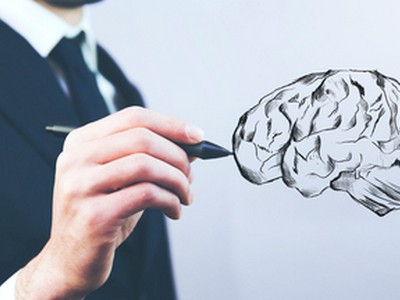
Anxiety Depression Quotes Psychologist Ashmore (07) 5539 9798
Isabella Whittingham Registered Psychologist Ashmore

Introduction: Symptom Of Depression Psychologist Ashmore Near Me
Clinical anxiety is a major mental health condition that affects millions of individuals worldwide. It can have an extensive influence on an individual's life, triggering feelings of sadness, despondence, and a loss of interest in activities they as soon as took pleasure in. While it's regular to experience occasional bouts of unhappiness or low mood, depression is characterized by relentless symptoms that last for weeks or months.
In this short article, we will explore the signs of depression and talk about when it might be needed to seek professional aid. We will look into the various indications and indicators of depression, as well as provide assistance on how to handle and handle this devastating condition.
Exploring the Symptoms of Clinical Depression
What is Scientific Depression?
Clinical anxiety, also called major depressive condition (MDD), is a mental health condition that substantially affects a person's thoughts, emotions, and behavior. Unlike situational or temporary unhappiness, depression is defined by consistent signs that disrupt everyday functioning and quality of life.
Recognizing the Symptoms
Depression manifests in a different way in each person, however there are common signs that may indicate the presence of clinical depression. These symptoms can be categorized into psychological, cognitive, physical, and behavioral manifestations.
Emotional Symptoms
- Pervasive sensations of sadness or emptiness
- Loss of interest or satisfaction in activities as soon as enjoyed
- Feelings of regret or worthlessness
- Mood swings or irritability
- Increased level of sensitivity to criticism or rejection
Cognitive Symptoms
- Difficulty concentrating or making decisions
- Memory problems or forgetfulness
- Negative thinking patterns or pessimism
- Loss of motivation or energy
- Suicidal thoughts or preoccupation with death
Physical Symptoms
- Sleep disruptions (sleeping disorders or excessive sleep)
- Changes in appetite or weight (significant gain or loss)
- Fatigue or absence of energy
- Physical pains and pains without a clear cause
- Digestive problems or headaches
Behavioral Symptoms
- Social withdrawal or isolation
- Decreased productivity at work or school
- Neglecting individual health or appearance
- Substance abuse or self-destructive behaviors
- Engaging in dangerous activities or careless behavior
When to Seek Professional Help
It is important to acknowledge when the symptoms of depression become extreme or hinder life. If you or somebody you understand is experiencing any of the following, it may be time to look for expert aid:
Persistent signs lasting more than 2 weeks: If you have been experiencing signs of depression for a prolonged period, professional aid can offer the needed assistance and treatment options.
Suicidal ideas or self-harm: If you are having ideas of suicide or engaging in self-harm, it is important to connect for instant aid. Contact a mental health expert, helpline, or emergency services right away.
Significant problems in daily performance: If your anxiety symptoms are disrupting your capability to carry out day-to-day activities, such as going to work, keeping relationships, or taking care of yourself, it is time to look for expert assistance.
Co-occurring mental health conditions: Depression typically coexists with other mental health conditions such as stress and anxiety disorders, bipolar disorder, or substance abuse. Seeking professional aid can attend to these intricate concerns and supply proper treatment.
Impact on physical health: Depression can have detrimental impacts on physical health, such as increased risk for chronic illness and compromised immune system. Consulting a healthcare professional can assist handle both the mental and physical aspects of depression.
Previous unsuccessful attempts at self-help: If you have actually tried various self-help techniques and way of life modifications without significant improvement in your depressive signs, it might be helpful to seek advice from a psychological health expert who can provide evidence-based treatments.
Frequently Asked Concerns (FAQs)
1. How can I separate between typical sadness and scientific depression?
While it is common to experience periodic unhappiness, clinical depression is defined by consistent signs that last for weeks or months. If your low state of mind considerably impacts your every day life, it might be a sign of clinical depression.
2. Can depression go away on its own without treatment?
In some cases, moderate depressive symptoms might improve in time without intervention. However, for people with depression, professional assistance is often essential to manage signs efficiently and avoid more deterioration.
3. Exist any natural solutions or way of life changes that can help ease depression symptoms?
While way of life changes such as routine exercise, a well balanced diet, and sufficient sleep can promote overall wellness, they may not suffice to treat clinical depression alone. It is important to look for professional guidance for a detailed treatment plan.
4. Is medication constantly necessary for dealing with depression?
Medication can be a reliable treatment choice for many people with clinical depression. Nevertheless, it is not constantly needed and depends on the intensity of signs and specific scenarios. A mental health specialist can assist figure out the most suitable course of treatment.
5. Can treatment assist with handling anxiety symptoms?
Therapy, such as cognitive-behavioral treatment (CBT) or How To Deal With Anxiety And Depression Psychologist Ashmore Near Me social therapy (IPT), is an extensively acknowledged treatment approach for managing anxiety signs. It can provide individuals with coping techniques, assistance, and a safe space to explore their emotions.
6. The length of time does it typically take to see improvement with treatment for depression?
The period of improvement differs from person to person and depends upon a number of factors such as the seriousness of signs and specific action to treatment. Some individuals may experience relief within weeks, while others might need more prolonged periods.
Anxiety Depression Psychologist Ashmore
Depression Causes Psychologist Ashmore Near Me
Isabella Whittingham Registered Psychologist Gold Coast
Surfers Paradise Chiropractic Centre-Dr. Bruce Whittingham
12 Thomas Drive, Surfers Paradise QLD 4217
(07) 5539 9798
https://surfersparadisechiropractic.com.au
Anxiety Vs Depression Psychologist Ashmore Near Me